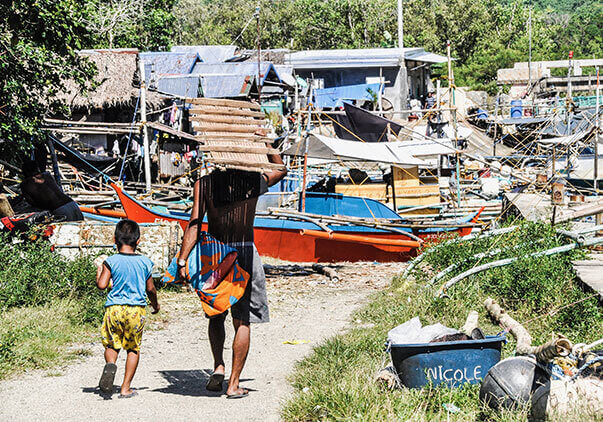
My Vision: Rhoda Phillips, founder of Communities for Nature
It was Baba Dioum, speaking at the General Assembly of the International Union for the Conservation of Nature and Natural Resources in 1968, who said: "In the end we will conserve only what we love, we will love only what we understand, and we will understand only what we are taught."

Photo by Philippine Reef and Rainforest Conservation Foundation
The landscape – in both senses of the word – has changed since 1968 and the consequences of our depletion of the planet’s resources are coming upon us in ever more frequent and extreme ways, but the sentiment of Dioum’s statement holds fast. Protecting our planet and its natural resources is a collective responsibility, but one we can meet with the dual personal approach of education and experience.
I can attest to this myself. In the early noughties I spent nearly four years as the Island Manager and Education officer for Danjugan Island, a 43-hectare conservation area at the heart of the Philippine Reef and Rainforest Conservation Foundation Inc. (PRRCFI). The experience was formative and, in the time since, has catalysed into the existence of Communities for Nature. I was thrilled when the PRRCFI agreed to partner with corporate supporter LMAX – the first relationship established by the fledgling Communities for Nature. It’s a partnership that’s already illustrating the power of our model and having local communities shape the kind of support they need.
The climate and biodiversity crises are the defining issues of our time and the wide-reaching and intricate web of causation and effect warrants a global response. We know this, and at Communities for Nature we are seeking to facilitate the response by fostering not only funding channels but close collaboration and knowledge sharing between local communities on the front line of conservation and their partners located around the world.
Becoming a Communities for Nature partner means having the chance to work closely with those on the front line of conservation toward shared goals. Being a community supported by a Communities for Nature project is to benefit from purposeful funding, ringfenced to tackle your specific priorities.
There’s much to do, from traditional conservation work, to teaching skills for a sustainable economy, to solving the proliferation of single use plastics (the Philippines, for example, use a staggering 60 million single-use plastic sachets a year, according to a 2019 study). Fortunately, the wheels are in motion, and many more pieces of the puzzle can be secured by channeling global resources to working hand in glove with local communities. Meaningful and directional action bridges the gap between on the ground expertise and passionate organisations elsewhere in the world, using increased understanding and emotional connections to achieve the commitment to conservation Dioum spoke about over half a century ago.
It fills me with great joy to consider the future that lies before Communities for Nature, our local communities and our partners. Together we can make a difference with environmental education and providing investment into sustainable futures, so I hope you remain with us on our journey.